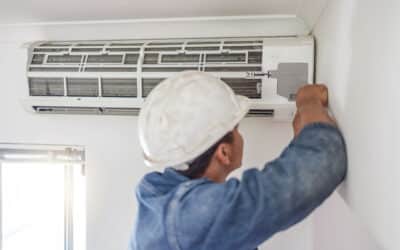When it comes to air conditioning, refrigerant plays a crucial role in keeping our homes and offices cool and comfortable. But what exactly is refrigerant, and why is it so important? In this blog post, we will delve into the world of refrigerants, exploring their types, functions, and the importance of proper handling and maintenance.
What is Refrigerant?
Refrigerant is a chemical compound used in air conditioning and refrigeration systems. Its primary function is to absorb heat from the indoor environment and release it outside, thereby cooling the air inside. This process is essential for maintaining comfortable indoor temperatures, especially during hot summer months.
How Does Refrigerant Work?
The operation of refrigerant in an air conditioning system is based on the principles of thermodynamics. The process can be broken down into four main stages:
- Evaporation: The refrigerant absorbs heat from the indoor air as it passes through the evaporator coil. During this phase, the refrigerant evaporates from a low-pressure liquid to a low-pressure gas.
- Compression: The low-pressure gas is then compressed by the compressor, which increases its temperature and pressure.
- Condensation: The high-pressure, high-temperature gas moves to the condenser coil, where it releases the absorbed heat to the outdoor air. As it loses heat, the refrigerant condenses back into a high-pressure liquid.
- Expansion: The high-pressure liquid refrigerant passes through an expansion valve, reducing its pressure and temperature before it returns to the evaporator coil to repeat the cycle.
Types of Refrigerants
Over the years, several types of refrigerants have been used in air conditioning systems. The most common types include:
- Chlorofluorocarbons (CFCs): CFCs, such as R-12, were widely used in the past but have been phased out due to their ozone-depleting properties.
- Hydrochlorofluorocarbons (HCFCs): HCFCs, like R-22, are less harmful to the ozone layer but are also being phased out due to their environmental impact.
- Hydrofluorocarbons (HFCs): HFCs, such as R-410A and R-134a, are widely used today because they do not deplete the ozone layer. However, they still have a high global warming potential (GWP).
- Hydrofluoroolefins (HFOs): HFOs, like R-1234yf, are the newest class of refrigerants. They have a low GWP and are more environmentally friendly compared to HFCs.
The Importance of Proper Refrigerant Handling
Proper handling and maintenance of refrigerants are crucial for several reasons:
- Environmental Protection: Improper handling of refrigerants can lead to leaks, which contribute to ozone depletion and global warming. Technicians must follow regulations and guidelines to minimize environmental impact.
- System Efficiency: An air conditioning system with the correct refrigerant charge operates more efficiently, providing better cooling performance and reducing energy consumption.
- Safety: Some refrigerants can be hazardous if not handled correctly. Technicians must use appropriate protective equipment and follow safety protocols to prevent accidents and exposure.
- Compliance with Regulations: There are strict regulations governing the use and disposal of refrigerants. Compliance with these regulations is essential to avoid legal issues and penalties.
Common Refrigerant Issues and Solutions
Several common issues can arise with refrigerants in an air conditioning system:
- Leaks: Refrigerant leaks are a common problem that can reduce system efficiency and harm the environment. Regular maintenance and leak detection can help prevent and address this issue.
- Incorrect Refrigerant Charge: An incorrect refrigerant charge can lead to poor cooling performance and increased energy consumption. It’s essential to ensure the system is charged with the correct amount of refrigerant.
- Contamination: Contaminants in the refrigerant can cause system malfunctions and reduce efficiency. Regular servicing and proper handling can help prevent contamination.
- Phase-out of Older Refrigerants: As older refrigerants are phased out, it’s important to upgrade to newer, more environmentally friendly options. This may involve retrofitting or replacing existing systems.
Refrigerant is the lifeblood of any air conditioning system, playing a vital role in maintaining indoor comfort. Understanding the different types of refrigerants, their functions, and the importance of proper handling and maintenance can help ensure your air conditioning system operates efficiently and sustainably. At Able Air Conditioning & Heating, we are committed to using the best practices and latest technologies to provide our customers with reliable and environmentally friendly cooling solutions. If you have any questions about refrigerants or need assistance with your air conditioning system, don’t hesitate to contact us. We’re here to help!



